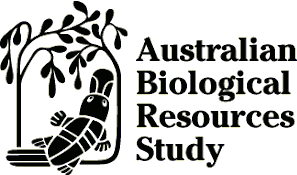Australian Tropical Rainforest Plants - Online edition
Planchonella euphlebia (F.Muell.) W.D.Francis
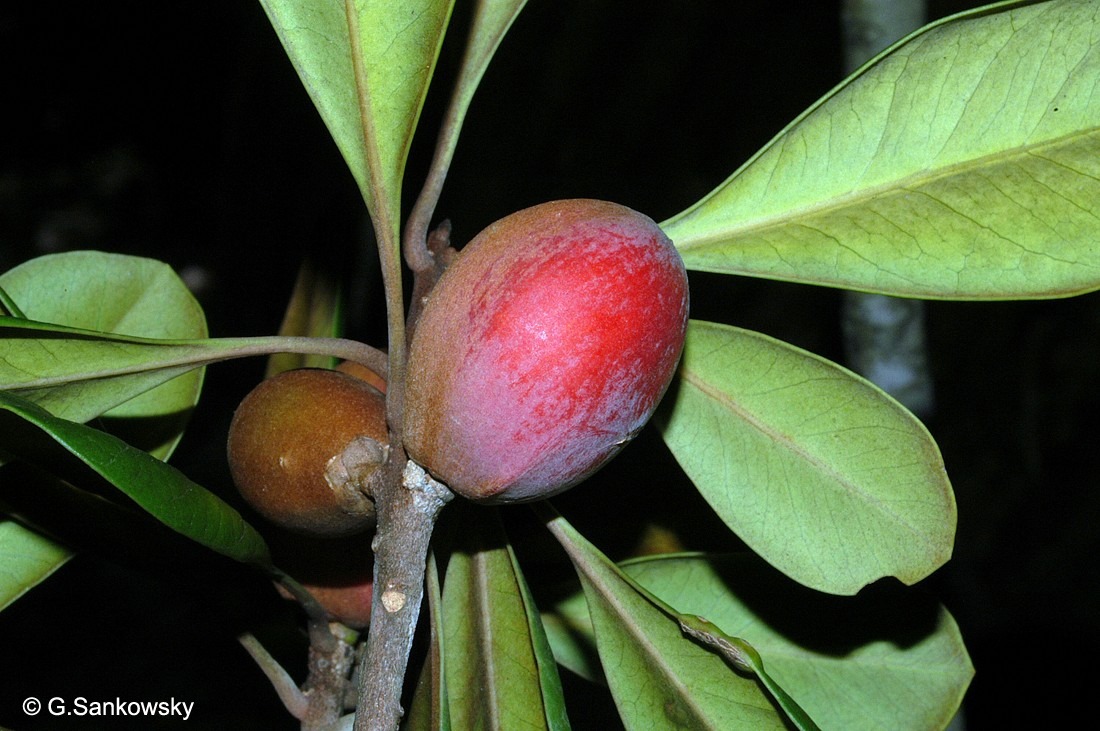
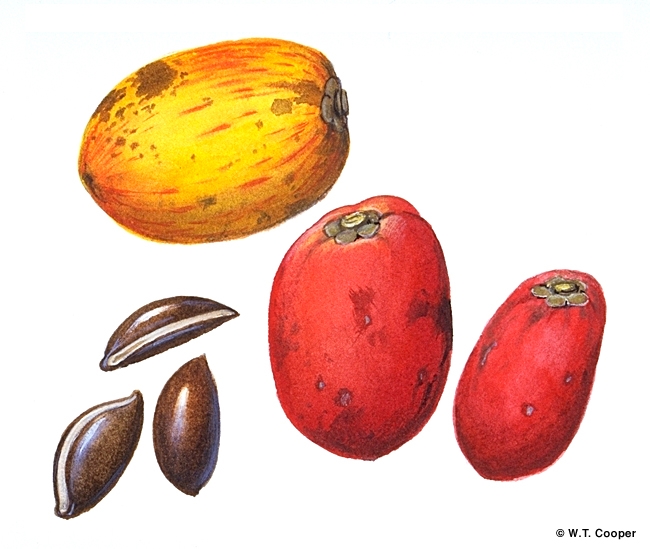
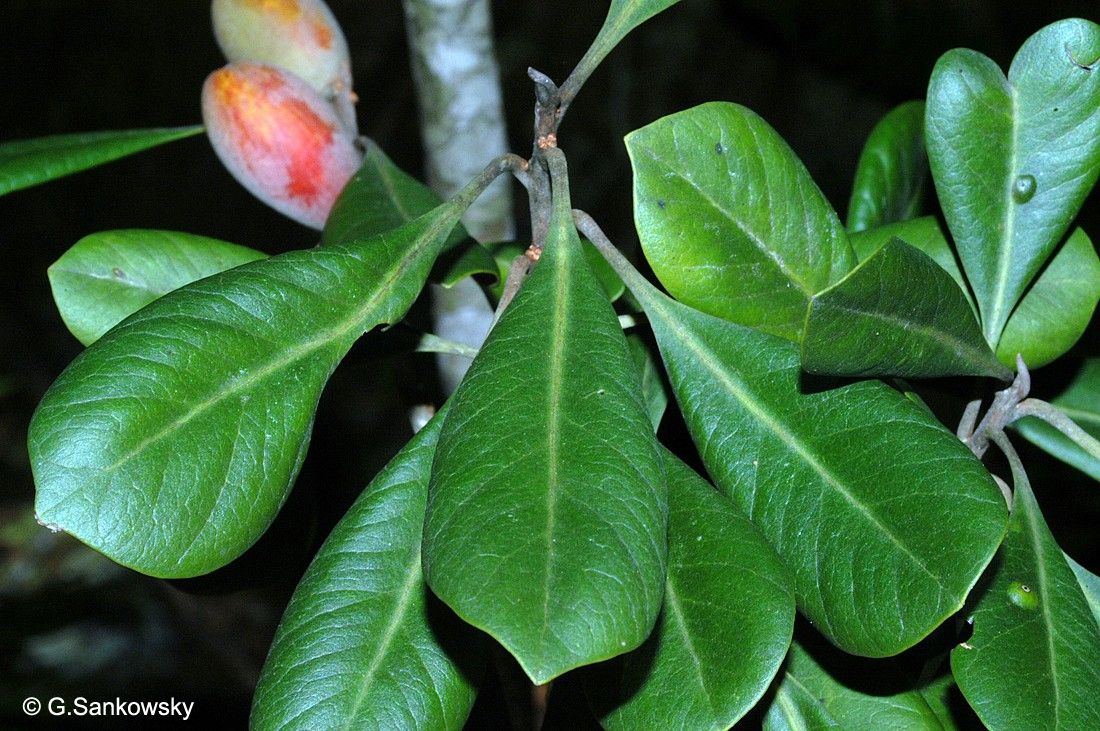
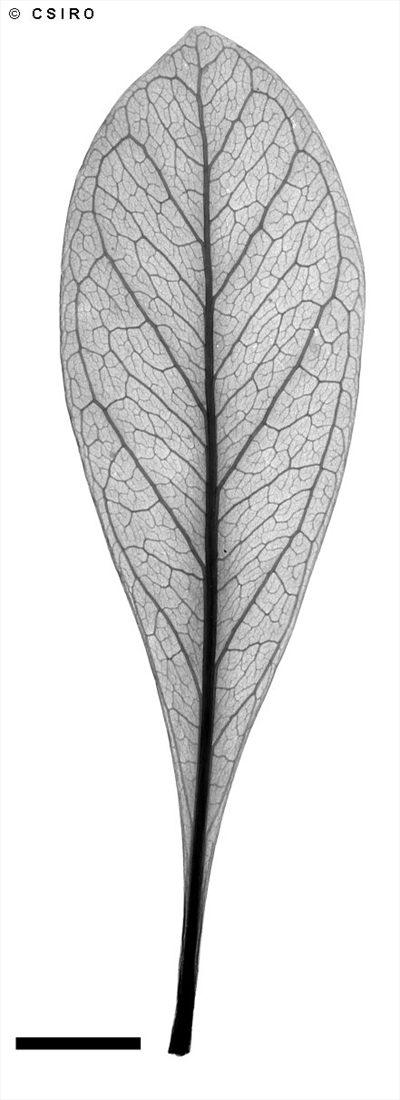


Francis, W.D. (1951) Australian Rain-Forest trees ed. 2 : 448.
Hickory Boxwood; Boxwood, Hickory
Milky bark exudate rather meagre and watery, slow to appear.
Sepals broadly ovate, about 2.5-3.5 x 2-2.5 mm, ferruginously sericeous outside, but glabrous on the inner surface. Corolla about 2.5-4 mm long. Stamens inserted towards the base of the corolla, filaments about 1 mm long, anthers about 0.8 mm long. Staminodes lanceolate or linear, about 1 mm long. Ovary about 1 mm long, ferruginously tomentose, disk 10-lobed, adnate to the ovary. Style about 2-2.5 mm long.
Cotyledons ovate or elliptic, about 30-35 mm long. First pair of true leaves obovate, margins entire. At the tenth leaf stage: leaves obovate, apex acute or acuminate, base attenuate, upper surface glabrous or with a few hairs near the base on the midrib, about 7-10 lateral veins on each side of the midrib; petiole, stem and terminal bud clothed in reddish brown, prostrate hairs. Seed germination time 19 to 41 days.
Produces a useful general purpose timber.
Wood specific gravity 1.02. Cause et al. (1989).




